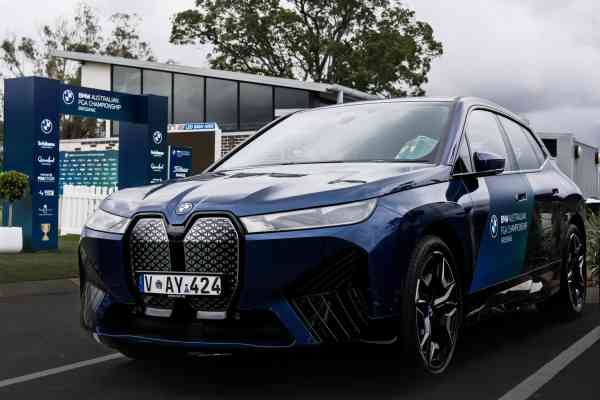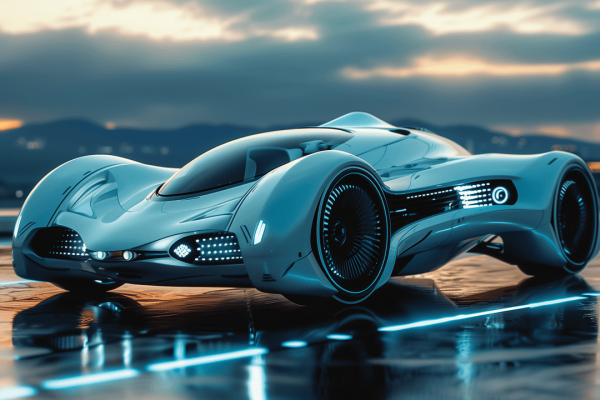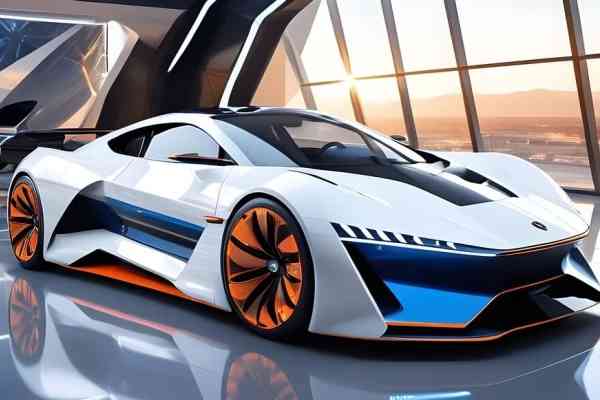BAY.MOTOREN WERKE AG ST
Commented by André Will-Laudien on January 29th, 2025 | 07:00 CET
Watch out! VW and BMW are turning, Benton Resources is stepping on the gas, while Nordex and Siemens Energy are on the sidelines
For the German economy, a 180-degree shift in economic policy is needed to stop the ongoing migration of industries abroad. However, this requires signs of a consistent refocusing on burning issues, which neither the parties with a claim to the government nor the opposition can really present. International investors have refocused on European markets at the beginning of the year, as reforms are expected. The premature praise for Donald Trump has generated new highs in the US, but now the NASDAQ seems to be running out of steam. Germany, as the laggard in terms of economic growth, offers very low valuations that have rarely been seen for longer periods. We highlight some opportunities.
ReadCommented by André Will-Laudien on December 16th, 2024 | 07:00 CET
Bull's eye in 2025: Nuclear energy and hydrogen! Watch out for Nel, Plug Power, First Hydrogen, Mercedes and BMW
The production of hydrogen using nuclear energy is seen as a promising way to create a flexible energy carrier in a climate-neutral manner. Especially in areas where renewable energy sources are insufficient or a continuous power supply is required, hydrogen demonstrates its strengths. The carbon footprint of hydrogen from nuclear energy is comparable to that of renewable sources such as wind and solar since nuclear power plants operate almost emission-free. Unlike wind or solar energy, nuclear power can generate electricity around the clock because it is not dependent on weather conditions. This helps to avoid so-called dark doldrums, such as the one recently experienced in Germany on Friday. In countries such as France and Japan, nuclear energy is already considered an option for hydrogen production to advance the decarbonisation of industries. Which stocks are coming to the fore as a result?
ReadCommented by Fabian Lorenz on December 5th, 2024 | 07:30 CET
BUYING RECOMMENDATION and DISCOUNT BATTLE! Nel ASA, BMW, Volkswagen, ARI Motors
"If you don't offer an e-vehicle for under EUR 20,000 by 2025, then I'm afraid you will fail," said the current Minister of Economic Affairs, Robert Habeck, to the then-Volkswagen CEO Herbert Diess in 2019. Such a vehicle is still missing from the lineup of traditional German carmakers - but now ARI Motors delivers. The Company is already succeeding with an electric pickup. The valuation is favorable, and analysts see more than 300% upside potential. Is BMW sparking a price war? The premium manufacturer has enough problems already. Can a new manager bring a breath of fresh air? Meanwhile, Nel shares are sending a sign of life. Will the order for pink hydrogen turn things around?
ReadCommented by André Will-Laudien on November 12th, 2024 | 08:00 CET
Traffic light disaster brings new opportunities for e-mobility: VW, BMW, ARI Motors, BYD and NIO
The traffic light coalition has broken down – so right before left applies! In addition to the Berlin disaster, a relentless struggle has long since broken out in the automotive market. Habeck, for example, wants to get the environmental subsidy back in 2025 due to a sharp drop in electric vehicle sales, while important market shares of German industry have long since been lost. Germany is making only hesitant progress in the area of energy transition, while nuclear energy is experiencing a renaissance worldwide. Fortunately, innovative concepts are repeatedly emerging from medium-sized companies, driving Germany forward as a business location. With a new, forward-looking industrial policy, Germany could regain its leading position. For dynamic investors, this is an explosive environment with extraordinary opportunities for high returns.
ReadCommented by André Will-Laudien on October 14th, 2024 | 07:15 CEST
Hydrogen 3.0 is coming – Where to get on board now? Nel ASA, First Hydrogen, Plug Power, BYD, and BMW
Despite new highs in all major indices, hydrogen stocks are performing poorly. This is because preferences vary widely among countries in the global "net zero" discussion. Topics such as nuclear energy or even nuclear fusion are being discussed, while sales in the e-mobility sector are declining rather than increasing. Assuming that, at some point, the world will once again approach the issue of climate change with an open mind regarding technology, hydrogen technology has a clear place among the green alternative solutions. There is still a cost problem and a lack of courage to move forward faster. However, experienced stock market players know that after a 90% price loss, the sell-off will eventually end. The first signs are evident.
ReadCommented by Armin Schulz on September 18th, 2024 | 07:45 CEST
BYD, Altech Advanced Materials, BMW – The Battle Between China and Europe in the Automotive Industry
The competition between Asian, especially Chinese, and European car manufacturers is intensifying, especially in the electric vehicle sector. China has overtaken Germany as the largest vehicle exporter, and brands like BYD dominate with technological advantages and lower prices. European manufacturers are under pressure and are responding with measures such as possible punitive tariffs and increased competition. At the same time, they are investing in research, development, and strategic partnerships. We look at the current situation of car manufacturers and present a company that could revolutionize the e-mobility market.
ReadCommented by André Will-Laudien on September 11th, 2024 | 07:15 CEST
Caution: The next commodity rally boosts Globex but brings higher costs for VW, BMW, and BYD!
The price of copper exceeded the USD 9,000 mark again in September, and future prices remain stable above the USD 9,400 mark. This makes it clear to high-tech manufacturers and producers of alternative energies that the desired electrification will cause significantly higher costs than anticipated. Despite the global economic stagnation, commodity prices remain high. This is mainly due to the general increase in operating costs in mining operations. Energy, material, and personnel costs have seen the most significant increases in over 30 years since 2020. Major consumers of industrial metals, in particular, are now having to dig deeper into their pockets. For some, this is feasible, but for mass producers such as Volkswagen or BYD, this means increased pressure on margins. Where are the opportunities for investors?
ReadCommented by André Will-Laudien on September 9th, 2024 | 07:00 CEST
100% gains with auto stocks! BYD and dynaCERT are already on the launch pad. Are VW, BMW and Mercedes low enough yet?
Growing market shares through progress and innovation. While Chinese e-mobility is vehemently pushing into Europe, local manufacturers face a strategic dilemma. After all, combustion engines are currently still in demand, but what will things look like in 10 years? European car manufacturers currently have to pursue an expensive dual strategy in order to generate revenue. This means that they must not lose pace with developments in the electric vehicle sector while the combustion engine business continues to run at full throttle. While BMW will start series production of fuel cell cars in 2028, the Canadian hydrogen specialist dynaCERT is already in full swing. Where are the opportunities for resourceful investors?
ReadCommented by Fabian Lorenz on September 4th, 2024 | 07:00 CEST
BMW focuses on hydrogen! Takeover (fantasy) at BYD, Nel and dynaCERT
BMW recently sold more electric vehicles in Germany than Tesla. However, the Munich-based company does not want to rest on its laurels and is working on various propulsion systems - including hydrogen! BMW plans to intensify its collaboration with Toyota on fuel cells, demonstrating that hydrogen technology remains in demand among global giants. This also fuels the takeover fantasy at Nel. Could the same be true for dynaCERT? The Company's hydrogen technology reduces emissions in diesel vehicles, and the new CEO has strong connections in Europe. And what is BYD doing? So far, the German market has not been fully penetrated, but now the Chinese company is looking to make a significant push.
ReadCommented by André Will-Laudien on April 23rd, 2024 | 07:45 CEST
Attention: DAX dividends! Car stocks pay out: Mercedes-Benz, MS Industrie, VW and BMW
The DAX 40 index has gone into reverse gear in recent weeks. In addition to the high-tech and artificial intelligence sectors, the multi-month bull market also included defense stocks in the interim phase. There is no real reason to celebrate among automotive stocks, as an expected decline in GDP also means reduced household budgets. This translates to fewer new vehicle sales, with many electric vehicles produced in bulk occupying important showroom space from dealers for months. The pain is increasing, and those looking to sell vehicles find themselves in ruinous discount battles with cheap Chinese imports. However, there appears to be a glimmer of hope on the horizon: interest rate cuts! They are expected in the second half of the year. We analyze the current situation.
Read









